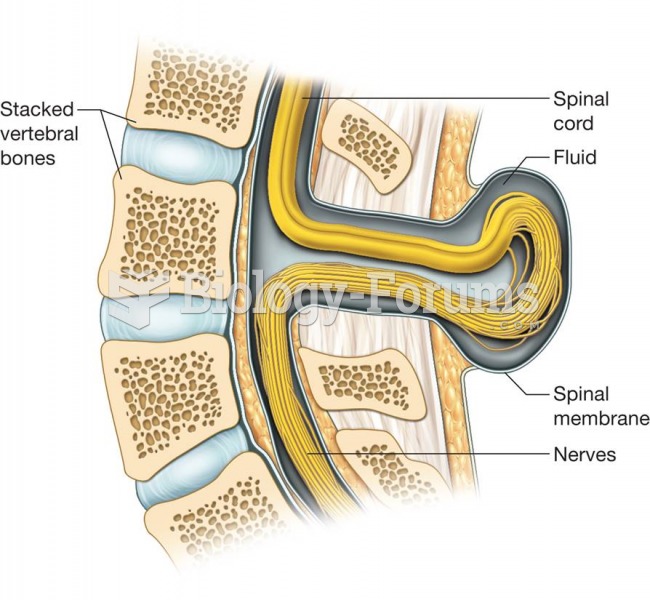|
|
|
Adult head lice are gray, about ? inch long, and often have a tiny dot on their backs. A female can lay between 50 and 150 eggs within the several weeks that she is alive. They feed on human blood.
Hyperthyroidism leads to an increased rate of metabolism and affects about 1% of women but only 0.1% of men. For most people, this increased metabolic rate causes the thyroid gland to become enlarged (known as a goiter).
The heart is located in the center of the chest, with part of it tipped slightly so that it taps against the left side of the chest.
More than 34,000 trademarked medication names and more than 10,000 generic medication names are in use in the United States.
The average human gut is home to perhaps 500 to 1,000 different species of bacteria.







